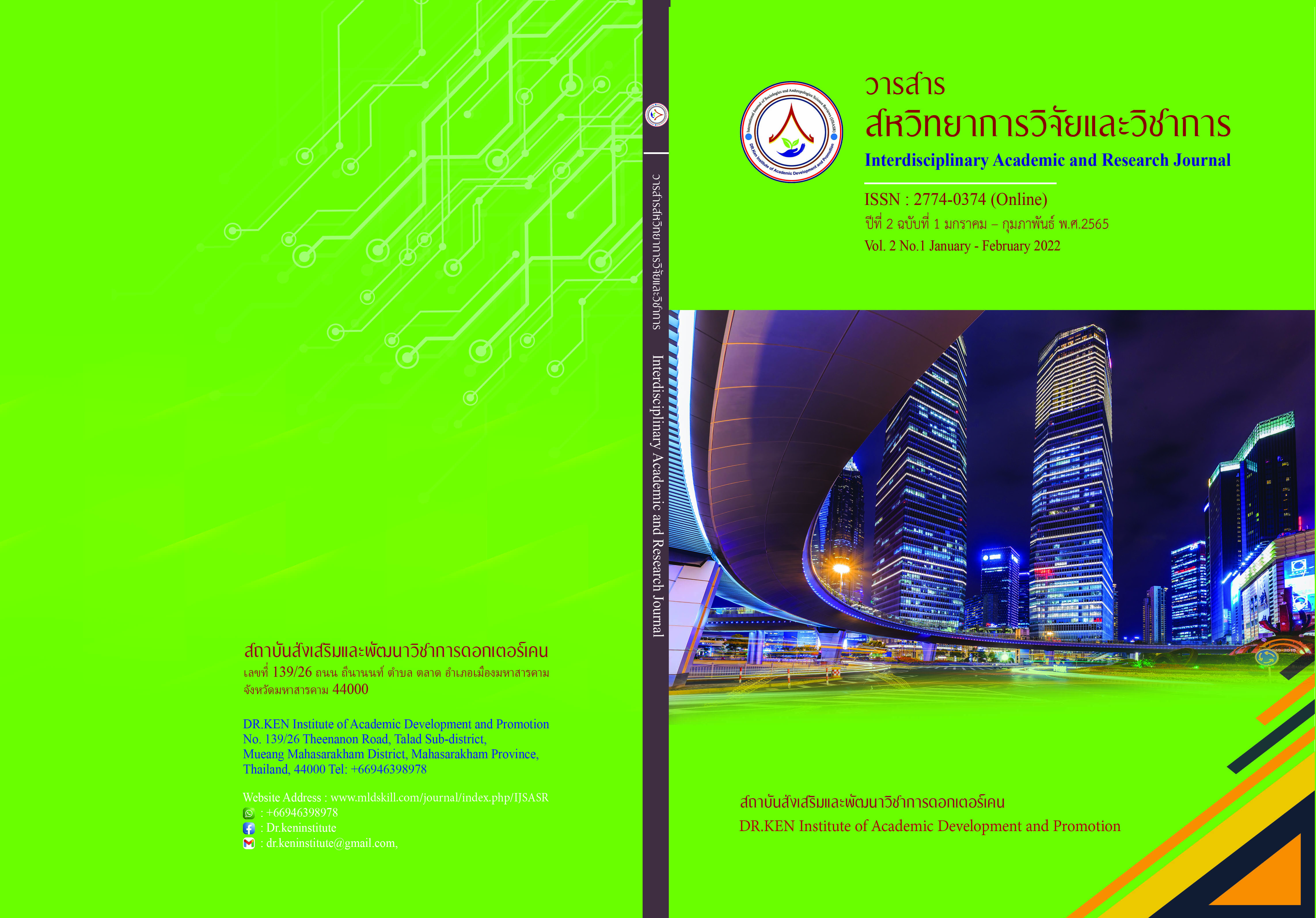Model of Course Management of Learning by Working in Real Conditions
DOI:
https://doi.org/10.14456/iarj.2022.5Keywords:
Course Management,, Outcome-based Education (OBE), , working in Real ConditionsAbstract
The objectives of this research were study to the effects of learners and instructors, student opinion level and explore of teaching and learning management styles by working in real conditions. Course management on outcome-based education of learning by working in real conditions was used in teaching and learning in the subject of the seminar of in entrepreneurship management and innovation in semester 2021of the faculty of business administration and sample were 82 students, university by the teaching and learning management model based of the concepts and theories of outcome-based education (OBE) to integrate as a part in teaching and learning. Questionnaires were used to collect data. Statistics for data analysis were using descriptive statistics.
The results of teaching and learning management in the Course Management Based on Outcome-Based Education (OBE) of Learning and teaching by working in real conditions found that the outcomes of the learners consisted of 5 areas: 1) participation/engagement with learners 2) learning behavior 3) motivation 4) attitude of the learners and 5) learning achievement were showed at high level. The results of the teachers consisted of 2 aspects: 1) new learning management attitude and 2) teaching behavior. It found that the teachers learned and gained more knowledge, skills, understanding and visibility of the new learning management that was more consistent with the 21st century. There was the preparation of teaching and learning planning was more systematic. Furthermore, the teachers were satisfied and interested to develop the new learning management was consistent with the concepts and theories of outcome-based education (OBE).
References
Bandura, A. (1989). Social cognitive theory. In R. Vasta (Ed.), Annals of child development. Vol.6. Six theories of child development. Greenwich, CT: JAI Press.
Bellanca, J., and Brandt, R. (2010). 21st century skills : Rethinking How Students Learn. Solution Tree Press.
Boyatzis, R.E. (1982). The Competent Manager: A model of Effective Performance. New York: John Wiley and Sons Inc.
Herkema, S. (2003). “A Complex Adaptive Perspective on Learning with in Innovation Projects”. The Learning Organization.
Krejcie, R. V. & Morgan, D. W. (1970). Determining sample size for research activities. Education and Psychological Measurement.
Maesincee S. (2016). Thailand 4.0. [Online] May 15, 2021 from http://planning2.mju.ac.th/goverment/20111119104835_planning/Doc_25590823143652_358135.
McClelland, D.C. (1973). Testing for Competence rather than for Intelligence, American Psychologist.
Office of the National Economic and Social Development Board. (2017). National Economic and Social Development Plan No. 11, [Online] Retrieved May 15, 2021, from http://www.nesdb.go.th/Portals/0/news/plan/p11/plan11.pdf.
Songsraboon R. (2020) TQF 2 New Digital Marketing Curriculum Search University, [Online] 8 June 2021, From https://admission.siam.edu/2020/07/23/digital_marketing/.
Spady, W. (1994). Outcome-based education: Critical issues and answers. Arlington, VA: American Association of School Administrators.
Wanitbuncha, K. (2014). Structural equation modeling analysis by AMOS (1st Ed). Chulalongkorn University Press.
Downloads
Published
How to Cite
Issue
Section
License
Copyright (c) 2022 Interdisciplinary Academic and Research Journal ISSN 2774-0373 (Online)

This work is licensed under a Creative Commons Attribution-NonCommercial-NoDerivatives 4.0 International License.
Copyright on any article in the Interdisciplinary Academic and Research Journal is retained by the author(s) under the under the Creative Commons Attribution-NonCommercial-NoDerivatives 4.0 International License. Permission to use text, content, images, etc. of publication. Any user to read, download, copy, distribute, print, search, or link to the full texts of articles, crawl them for indexing, pass them as data to software, or use them for any other lawful purpose. But do not use it for commercial use or with the intent to benefit any business.
















.png)


